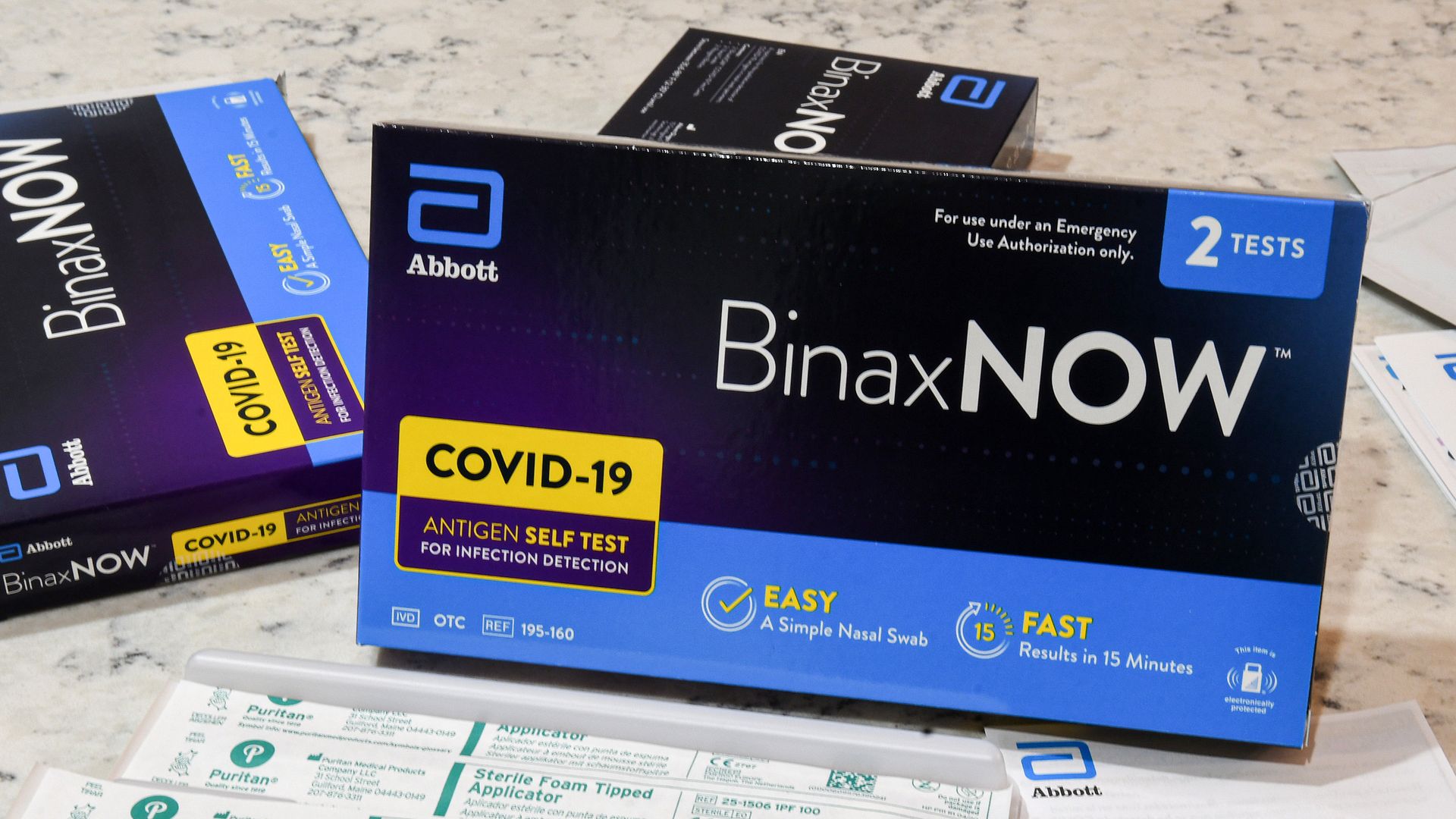Rapid COVID test companies lobby for Medicare coverage
Add Axios as your preferred source to
see more of our stories on Google.

Abbott's rapid COVID test. Photo: Paul Hennessy/SOPA Images/LightRocket via Getty Images
The largest manufacturers of rapid, at-home COVID-19 tests have created a new lobbying group that is urging Medicare to pay for their tests, according to federal lobbying disclosures.
Why it matters: Rapid tests have become increasingly important for people to monitor infections as the Omicron variant takes hold, but the costs and supply of tests have been a sticking point for many people.
Details: Five of the largest makers of rapid COVID tests — Abbott, Becton Dickinson, eMed, Quidel and Visby Medical — started the At-home COVID Testing, or ACT, Coalition with the express purpose of "seeking Medicare coverage and payment" for rapid COVID tests, according to lobbying documents.
- The companies did not immediately respond to interview requests.
Driving the news: The Biden administration just bought 500 million rapid COVID tests, and any American can get a test delivered by mail for free via a federal website starting in January.
- People with job-based health insurance also can buy rapid tests next year and submit reimbursement claims with their insurers.
Yes, but: Medicare was not part of the White House's rapid test rollout even though manufacturers have been working with federal officials for months to have Medicare pay for the tests, according to a source familiar with the ACT Coalition.
Between the lines: For PCR COVID tests, which require people to go to a hospital, pharmacy or testing site, Medicare and private insurers cover them at no cost under federal law.
- But for rapid tests, people buy them out of pocket at pharmacies or retailers and eat the costs, assuming the tests are available and if local health agencies aren't providing them for free.
What we're hearing: Testing companies want Medicare to cover rapid tests for free like how the program covers certain durable medical equipment, like diabetes test strips, instead of having Medicare patients submit receipts, according to the source.
- In that situation, Medicare patients could pick up a rapid test from their pharmacy or have it mailed to their home, and their pharmacy or supplier would bill the government.
- However, federal watchdogs have repeatedly raised concerns about inappropriate and fraudulent billing for Medicare-covered supplies.
What to watch: Federal guidance on rapid test reimbursement is supposed to come out no later than Jan. 15, and based on recent comments from Health and Human Services Secretary Xavier Becerra and the formation of this lobbying group, it's possible Medicare coverage could be part of it.
